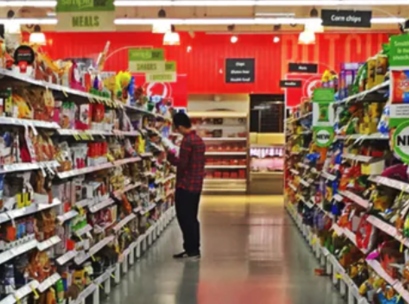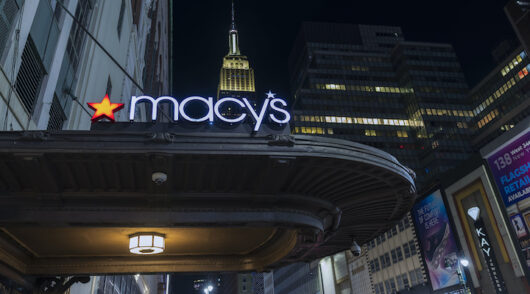 France-based supermarket chain Carrefour made headlines last month when it shifted the product range in four of its supermarkets to prioritise its own private-label brands ahead of those sourced from suppliers.
France-based supermarket chain Carrefour made headlines last month when it shifted the product range in four of its supermarkets to prioritise its own private-label brands ahead of those sourced from suppliers.
European trade publication RetailDetail noted that while not all national brands disappeared from Carrefour’s shelves, private labels represented up to 80 per cent of face-outs in the four stores.
The retailer explained the decision as a “test”, noting that it continuously trials new concepts across its store network to ensure it keeps pace with market evolutions and customer expectations.
“It is important for Carrefour stores to offer a wide range of products, [both] Carrefour and national brands, to its customers,” a Carrefour spokesperson tells IRW.
But with falling footfall in retail centres compounded by increased rent and electricity costs, as well as increased pressure from the convenience of online shopping, it’s clear that retailers are taking every opportunity to increase margins and decrease costs.
And while lower prices are often passed on to consumers, the question remains: is this what customers really want?
Breaking the stigma
According to an Aldi Australia spokesperson, the use of private labels allows the company to offer an optimally selected range of products and guarantee quality at the best price.
“We would like to think we’ve had a key role to play in breaking the stigma around private label in Australia by showing our customers that offering private-label products at affordable prices does not mean you need [to] compromise on quality,” the spokesperson tells IRW.
According to research conducted by Aldi and Deloitte Access Economics and released in the Household Expenditure Report in November last year, the growing popularity of private-label products has been largely fueled by economic pressure on Australian consumers.
“Research showed that 15 per cent of Australians would switch to private-label products to save money if their day-to-day expenses increased,” the Aldi spokesperson says, adding that the study’s findings were echoed in other industry data at the time.
According to Aldi, Nielsen figures showed that the private-label product category grew by 4.3 per cent in 2016 – 60 per cent faster than brands – equating to 24 per cent of total grocery sales.
Because of this, the discount supermarket has been evolving its private-label offering regularly to meet changing consumer tastes and preferences. The company’s Just Organics range, for example, has increased from five staple items to encompass over 50 certified organic products.
With an estimated three million customers visiting the supermarket each week, according to an Aldi spokesperson, who increasingly value price above other metrics when choosing where to shop and what to buy, this strategy has been key in driving Aldi’s success.
The importance of brand recognition University of Queensland professor Gary Mortimer tells IRW that despite the prevalence of private-label products, there are still categories where a customer looks to brand name, rather than price, to establish trust.
“We think about vitamins, or over-the-counter medicines like paracetamols and things like that,” Mortimer tells IRW. “We tend to get drawn to brands like Band-Aid, Panadol, Nurofen, Blackmores, because there is trust enabled in the brand.”
In circumstances such as this, Mortimer notes that private-label products have a negative stigma attached to them: that they are
cheap alternatives to better offerings. Retailers have attempted to circumvent this stigma by creating “phantom brands”: retailer-owned brands that aren’t identifies as a private label.
“In the past we would have ‘Coles Chocolate’, or ‘Woolworths Chocolate’,” Mortimer says. “Today, particularly Woolworths have developed a whole range of their own phantom brands, like Apollo dog food. They’re able to deliver a product that looks like a branded product but in fact is a private-label product.”
Mortimer goes on to add that this is very much an Aldi strategy, in that it gives consumers the sense that the product is a relatively
good price compared with national branded products, but isn’t perceived as a private-label knock-off.
“If you’re not having to buy your product from a supplier or a wholesaler, you can have that product made under contract by a manufacturer, still put the 40 per cent margin on it, and still generally be lower than [the] actual branded products,” Mortimer says.
“[Additionally], if it’s your own product, other retailers can’t compete with you on price because it’s a different brand. If you’re
both selling the same brand of dog food, or the same brand of shampoo, retailers can compete on price.
“[However], If you have developed your own brand of shampoo it makes it very difficult [for competitors] to compete.”
This race to the bottom, however, creates a complex issue for smaller, independent suppliers and manufacturers that don’t carry
the brand recognition of something like Nestlé.
“For some brands, particularly smaller, fringe lines, they would be a bit more concerned… people will always buy the Cadbury or the
Coca-Cola, but it’s the smaller brands that have more to lose when we see a growth of private label,” Mortimer says.





